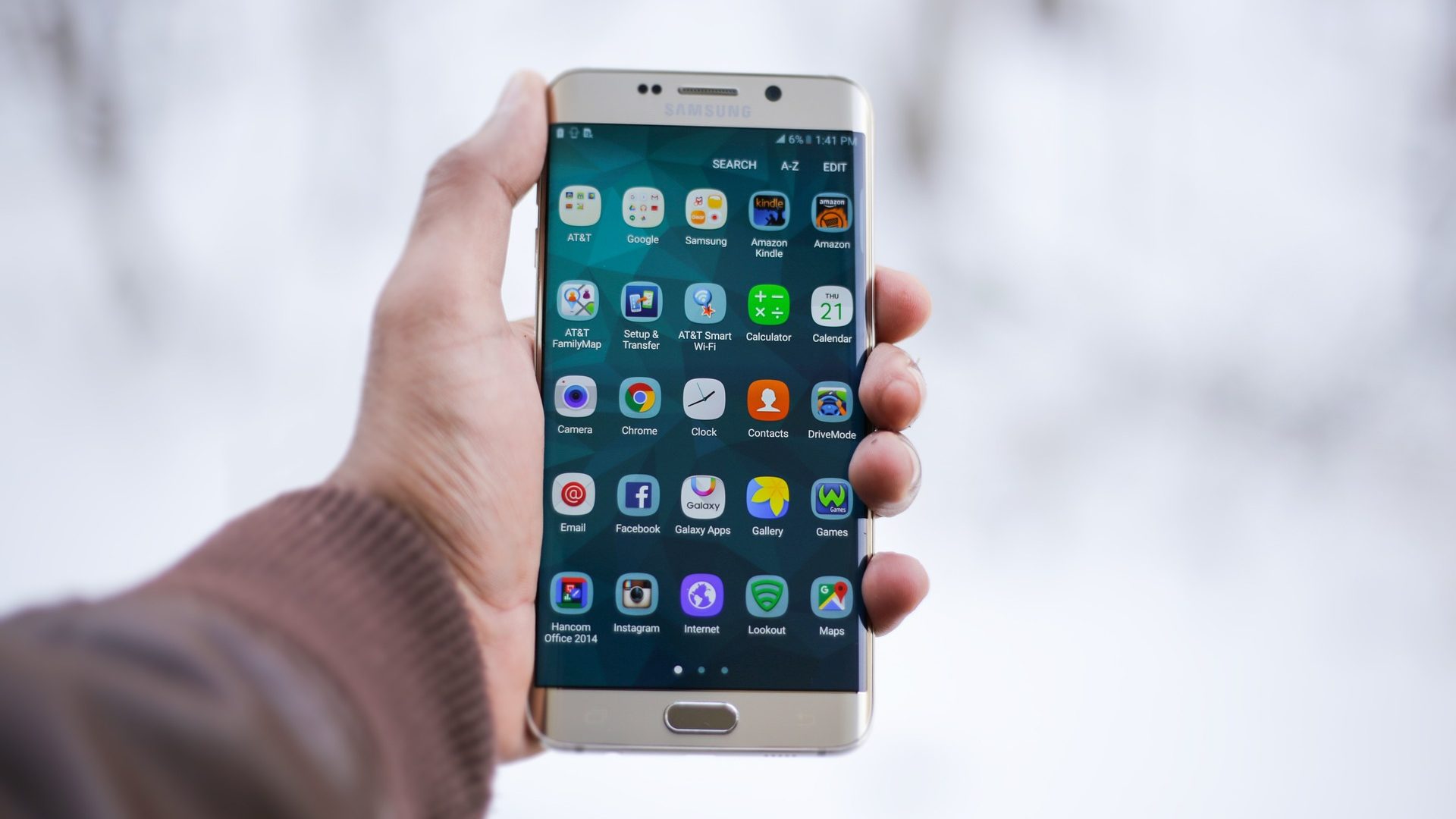
12 Oct Smartphones Are Teaching Us Mental Laziness!
If we can all agree on something, it would be that technology has come a long way and smartphones are now a huge and irreplaceable part of our lives…for better or for worse. However, since we’ve begun relying on smartphones more and more, it’s been shown that our capacity to think critically has decreased and mental laziness has increased. Is this the direction we really want to be heading?
Google…A Thinking Crutch
I’m not saying that it’s not handy to have a device that stores all of our hundreds of contact numbers or gives us instant directions, it’s most certainly handy! It is that information that we could critically think about that is just a couple of finger taps away into Google and you have an answer. Instead of remembering appointments or meetings, our phone reminds us 30 minutes before, and instead of actually remembering people’s birthdays, we wait for Facebook to tell us!
All these things are a real convenience, but over-reliance on these things is directly linked to mental laziness. It isn’t that people who are deep thinkers turn into people who don’t think at all, but intuitive thinkers or people who act on gut feelings tend to rely on their smartphones more than they usually would. Gordon Pennycook, a co-author of this study says, “They may look up information that they actually know or could easily learn but are unwilling to make the effort to actually think about it.”
The World Wide Web has only been around for about thirty years, but can we even imagine life before it? What it was like to actually have to go to a library to do research, have an address book, or actually, go and ask someone out on a date face-to-face? Revolutionary ideas, right?… Analytical and critical thinking are valued skills that over-reliance on the smartphone is threatening to take out, and we can’t afford that!
Craving Information: A Primal Instinct

As we’ve evolved, our brains now crave new information at instantaneous speeds, and while this would have been helpful back in the day of the cavemen, to assess and look out for threats and food, it is tuning our brains into rewarding all-new information! The brain rewards this new information with dopamine, and thanks to google and Facebook, we are continuously rewarding that instinct.
This may not be entirely bad; however, Pennycook urges us to ask (and think critically about) what areas we need to keep our internal thinking intact and which areas we can afford to outsource it. There are two types of thinkers: intuitive and analytical, and neither is better or worse than the other. For example, if the question “when was the world wide web invented?” was asked, analytical thinkers are more likely to internally search to find the answer. Maybe they’ll go back to a memory of when it was first invented and think about what year that memory was from. However, it is shown that intuitive thinkers are more likely to instantly ask google.
Neither is right or wrong, but we need to ensure that we are keeping our internal thinking intact so that we aren’t researching information we could easily think about internally and surrendering to mental laziness. We, as humans, do like to conserve our energy, and while thinking does drain energy, sometimes ‘conserving energy is used as a mask to cover what really is just lazy thinking.
A Tool for Good & For Laziness
There are always pros and cons to everything! My point is not to argue that we should get rid of smartphones and go back to all the ancient ways of existing. But I do want to give caution about our tendency to rely on google or our smartphones for something we could internally think about.
But the beauty of it all is that you get to choose. The choice has always been yours, even though it can feel like technology is being pushed upon us, the choice has always been ours. Become aware of how much you rely on your phone for something when you could exert that little bit of energy to do it yourself. Going completely off-grid and becoming a caveman is not an option for most, nor is it something that most wish to do. But there are ways that we can nurture those primal instincts instead of rewarding them every time our phone does the work for us.
Are you an analytical thinker or an intuitive thinker? Whichever you are, nurture that. If you’re an analytical thinker, keep taking the time to ponder deeply upon questions and trace those mental tracks back to find the answer. If you’re an intuitive thinker, tune into what your gut is telling you! The gut is a powerful tool and can tell you so much, don’t lose connection with that. Do whatever you can to remain as sharp as possible, and don’t fall into the trap of mental laziness.
Mental Laziness…It isn’t Worth it!
Technology is moving faster than research can keep up with, so the longer-term effects of over-reliance on technology are not known in full. But we do know, that over-reliance on technology is causing analytical thinkers to think less deeply, and intuitive thinkers to rely on a smartphone over their instincts. It isn’t worth giving up the valuable mental ability for mental laziness!
If you want more information on technology and its evolution, click ‘here’!
Hey! You’re Biased! – #30 The Google Effect

Have you ever looked up something on Google and then forgotten it a second later? That is called the Google effect or digital amnesia. Digital amnesia occurs because subconsciously we know how accessible the information is and so we don’t commit it to memory. It is the same with remembering our loved one’s phone numbers, we used to know them by heart, but now I wonder how many people actually know their friends and family’s phone numbers without looking at their phones. We are all prey to the Google effect, but let’s get unbiased!
References
Begley, S. (2017). Smartphone, Lazy brain. Mindful. https://www.mindful.org/smart-phone-lazy-brain/
Cherry, K. (2020). The Effects of Your Smart Phone on Your Brain. Very Well Mind. https://www.verywellmind.com/how-do-smartphones-affect-the-brain-2794892
Nathaniel Barr, Gordon Pennycook, Jennifer A. Stolz, Jonathan A. Fugelsang. The brain in your pocket: Evidence that Smartphones are used to supplant thinking. Computers in Human Behavior, 2015; 48: 473 DOI: 10.1016/j.chb.2015.02.029
Science Daily. (2015). Reliance on smartphones is linked to lazy thinking. Science Daily. https://www.sciencedaily.com/releases/2015/03/150305110546.htm
Science ABC. (2022). Does your smartphone make your mind lazy? Science ABC. https://www.scienceabc.com/humans/does-your-smartphone-make-your-mind-lazy.html
The Decision Lab. (n.d.). Why do we forget information we just looked up? The Decision Lab. https://thedecisionlab.com/biases/google-effect
Wagstaff, K. (2015). Are smartphones making us lazy thinkers? Today. https://www.today.com/money/are-smartphones-making-us-lazy-thinkers-t8911



No Comments